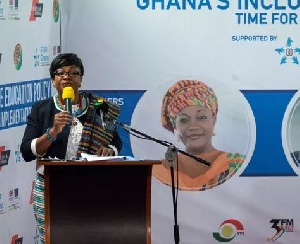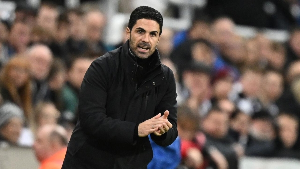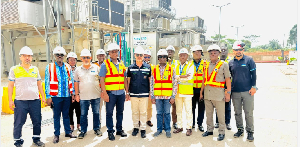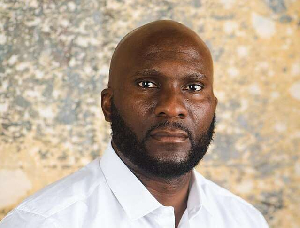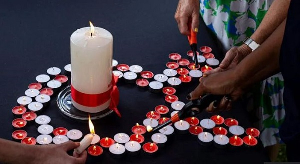The Minister for Children, Gender and Social Protection is asking city authorities to be firm in ensuring that public building designs that are not disability friendly are not given the permit for construction.
Madam Otiko Afisah Djaba also made a clarion call on existing buildings that are not accessible to persons with disabilities to rework on their structures to accommodate all.
The Minister was speaking on a national policy dialogue on disability organised by the Media General group in collaboration with Ghana National Education Campaign Coalition at TV3’s Executive Theatre on Thursday.
The dialogue under the theme “Ghana’s Inclusive Education Policy: Time for Full Implementation” brought together Members of Parliament, civil society groups, and disability groups among other interest groups.
Madam Afisah Djaba said the Ghana Standards on Accessibility Design, which provides guidelines for designing, implementation, supervision and decision-making to factor in persons with disability, should strictly be adhered to.
“You need to include disability in your structure, in the planning for designing, otherwise, the permit should not be given; so that persons with disability would have access [to all public buildings],” she remarked.
Though the minister admitted that there are challenges in complying with the Standards, she commended Media General for ensuring that most of its facilities are disability friendly, and therefore encouraged all offices to be disability compliant.
Ghana’s Disability Law, 2006 (Act 715) was passed in 2006 to end the discrimination that people with disabilities face. A ten-year moratorium was given by the Act for old buildings to be renovated to disability-friendly status but this elapsed with many public facilities not meeting it.
Disability can happen to anyone
Madam Afisah Otiko Djaba called for attitudinal change in all to recognize the needs of persons with disability in their actions.
She noted that disability is something that can happen to anybody, because, “with disability you don’t ask for it”.
A healthy person can be rendered disabled through wrong prescription or medication, old age, and accident among several other means.
She condemned parents who kill babies born with down syndrome or any form of disability as well as parents who hide their children and prevent them from going to school.
“We have to treat people with disability with love, with compassion and with respect and ensure that their dignity is given to them,” the minister admonished.
Inclusive Education Policy
She announced that the Inclusive Education Policy (IE) is currently being piloted in 20 focus districts in seven regions excluding the Ashanti, Western and Brong Ahafo regions.
A total of 18,310 made up of 9,846 boys and 8464 girls with special educational needs are benefiting from the scheme, she said.
She added that 37,700 copies of the IE Policy and the Standards and Guidelines and 14,400 copies of the implementation plan have been printed and are being distributed to stakeholders of which 600 copies have been printed in braille.
Challenges
The minister enumerated some of the challenges facing the policy:
School buildings are not accessible to some children with disabilities
The class size is too large to effectively deliver inclusive education
The schools do not have welcoming environment for children with disabilities
Inadequate assistive devices
Unwelcoming attitude of some teachers/pupils toward pupils with disabilities and
Inadequate funding
Other speakers included Prof. Samuel Hayford, Dean of the Faculty of Education Studies – UEW and Bright Appiah, Chairman of Ghana National Education Campaign Coalition.
General News of Friday, 3 August 2018
Source: 3news.com

